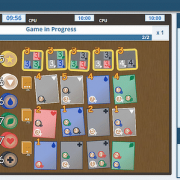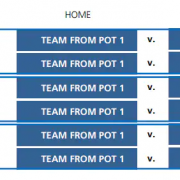Europa universalis 5: everything we want to see
Содержание:
Как вводить читы в Europa Universalis 4
Разработчики не стали отходить от стандартов и придумывать новый способ ввода команд, поэтому ограничились привычной для большинства геймеров консолью. Нужно нажать на клавиатуре “~” (тильда, а также буква Ё, если у вас контроллер с русской раскладкой) и в открывшемся окне ввести нужный чит. Чтобы изменения применились, действие следует подтвердить нажатием клавиши Enter.
Количество вводимых команд не ограничено – они прекрасно сочетаются друг с другом, не вызывая конфликтов и поломки игровых механик. Эффекты от ввода аналогичных команд могут суммироваться. С другой стороны, многие читы нельзя будет отменить в рамках текущей игровой сессии, поэтому рекомендуется сохраняться перед вводом команды, чтобы в случае необходимости просто запуститься с чистого сохранения.
Более подробную информацию об использовании команд можно узнать прямо в игре – консольная команда help выдаст весь доступный список читов, а если использовать ее с уточняющим идентификатором в формате help , справочная система выдаст вам полезные сведения по конкретному коду. Это очень удобно и позволяет получить сведения, не отвлекаясь при этом от игрового процесса.
Government reforms
Government reforms allow the player to custom-tailor the nation’s government to their needs by picking the desired reforms at the different tiers using Government reform progress points.
There are various reforms available to each of the government types with each tier having (usually) 2-3 reforms. The first tier usually determines the chosen power structure of the nation and consequently defines what abilities/mechanics are enabled to that nation. The last tier usually allows changing to a different government type though it comes at the cost of losing several reform tiers. Lists of all reforms can be found on the pages for the .
The game starts with first step already passed. The second tier costs 100 reform progress points and each following step has its cost increased by an additional 50 reform progress points. It is possible to change picked reforms by spending 50 reform progress points.
Reform progress points have a base accumulation of +10 points per year, further multiplied by a variable related to the level of autonomy of the nation’ provinces.
Many events and some missions give a one-time increase in reform progress.
Reform Progress growth Modifiers:
| Conditions | |
|---|---|
| +100% | at 100 Republican tradition |
| +10% | for completing the Franconian mission |
| Traditions | Ideas | Bonuses | Policies | |
|---|---|---|---|---|
| +15% | — |
|
— | — |
| +10% | — | — | — |
Agenda
Once every 5 years, you can Summon the Diet, which increases the loyalty and the influence of all estates by 5%. This influence modifier lasts 20 years (and stack for every Diet held in the meantime, for an effective maximum bonus of +20% influence). When you do so, happens, where three estates proposes an agenda, a kind of mission you must fulfill before a deadline, and the Diet asks you to choose one among them. Resolving an agenda grants between 10% and 20% loyalty to the corresponding estate, among other bonuses. Failing an agenda (i.e. not resolving it in time) will decrease the loyalty equilibrium of the corresponding estate by 5% for 20 years, among other penalties. These agenda are akin to the old mission system, where many missions turned around solving current issues (like recovering manpower, gaining prestige, improving relations with a neighbor, etc…).
The Supremacy over the Crown privilege can summon the diet without player input, as long as no agenda is active. This action does not affect the loyalty or influence of the estates, beyond fulfilling one of the agendas it offers and its resulting reward. It also does not affect the timer for which the player can summon the diet, so if the privilege summoned a diet while the player had the option to summon one, the player can immediately summon a second diet as soon as the first diet’s agenda has been resolved.
Advisor pool
A country can only have one active advisor of each type at a time; however, there are ways to increase the pool of options to choose from. In the 1444 start, each country starts with a pool of at least 3 advisor choices for each type. Countries with a of less than 50 ducats will not have access to level 3 advisors (except by event). Each country has access to at least one skill 2 advisor at start.
Gaining new advisors
New advisors will only arrive upon event or when a free slot is opened, either by increasing the advisor pool or a previous advisor dying. If the Common Sense expansion is activated, the player may also spend the initial cost of hiring an advisor to remove them from court. New advisors will appear at the start of the month.
Notifications can be set to alert the player of the arrival of new advisors. Advisors begin to have a chance of dying once they are past age 40, and new advisors will always be at least age 30. The consequently low rate of replacement means it is typically not worth waiting for an ideal advisor. Picking idea groups that give extra advisor slots can improve the odds of having an advisor with the desired abilities.
Female advisors
New advisors have a 2% chance of being female. This chance can be increased by the following:
| Traditions | Ideas | Bonuses | Policies | |
|---|---|---|---|---|
| +50% | — | — | — | |
| +25% | — | — | — | |
| +20% | — | — | — |
The only other sources of female advisor chance are (all the event modifiers are permanent):
| Condition | |
|---|---|
| +33% | with the government reform for revolutionary republics. |
| +25% | from the event for british revolutionary republics. |
| +20% | from the event for Burgundy. |
| +20% | from the event for Muslim theocracies. |
| +10% | from the event for countries with Zapotec as primary or accepted culture |
Enlarging the advisor pool
This can be increased by the following:
| Condition | |
|---|---|
| +2 | for being the curia controller. |
| +1 | for being a lucky nation (AI only). |
| +1 | for having a ruler with ‘Well Advised’ personality. |
| +1 | for the Holy Roman Emperor. |
| +1 | for being Reformed. |
| +1 | for being Jewish. |
| +1 | for being Mayan. |
| +1 | with Catholic, Mayan or Jewish as syncretic faith. |
| +1 | for having the Bureaucrat faction in power ( Ming with factions only). |
| +1 | for all player countries if the difficulty is set to ‘very easy’. |
Ideas and policies:
| Traditions | Ideas | Bonuses | Policies | |
|---|---|---|---|---|
| +1 |
|
|
— | — |
Decisions, missions and events:
| Event modifier | Trigger | Duration | |
|---|---|---|---|
| +1 | Terakoya | Japanese event: “”
|
until ruler changes. |
| +1 | Good Advice | Administrative ideas event: “” | for 10 years. |
| +3 | Golden age of Timbuktu | Songhain event: “” | until ruler changes. |
| +1 | Attracting the right people | Bahmani event: “”
|
for 10 years. |
| +1 | Dhimmi Administrators | Dhimmi event: “”
|
for 15 years. |
| +1 | Elaborate Court Life | Nobility event: “”
|
for 25 years. |
| +2 | Sanssouci palace | Prussia event: “”
|
Until the end of the game. |
| +1 | The chancellorship | Germany mission: “” | Until the end of the game. |
Сверхрасширение[]
Сверхрасширение – это превышение лимита роста государства. Это ещё одно ограничение, не позволяющее игроку захватить весь мир, и оно напрямую связано с национальными провинциями. Каждая провинция, не являющаяся национальной, даёт особый процент сверхрасширения, рассчитывающийся по следующей формуле: 1 дукат налогов = 4% сверхрасширения. Таким образом, провинция с 5 дукатами от налогов даст 20% сверхрасширения. Хотя опять же, колонии являются здесь исключением.
Чем выше сверхрасширение, тем сильнее будут проявляться следующие эффекты:
- — Риск восстания выше на половину текущего сверхрасширения (при 10% = +0,5 к восстанию, при 20% = 1 к восстанию и т.д.)
- — Цена стабильности выше, в процентах, на половину от текущего сверхрасширения (при 10% = на 5% дороже, при 20% = на 10% дороже и т.д.)
- — Шанс конкуренция с иностранными купцами ниже на процент сверхрасширения (10%=10% и т.д.)
- — Стоимость наёмников выше, в процентах, на половину от текущего значения сверхрасширения (10% = на 5% дороже, при 20% = на 10% дороже и т.д.)
- — Дипломатическая репутация ниже на 1/5 от текущего сверхрасширения (10% = -0,20, при 20% = -0,40 и т.д.)
- — Влияние на Папу ниже на 1/5 ниже на 1/5 от текущего сверхрасширения (10% = -0,20, при 20% = -0,40 и т.д.)
- — Снижение дипотношений со временем, в процентах, на 1 от текущего сверхрасширения (10% = -2,5%, 20% = -5% и т.д.)
Кроме того, повышенное сверхрасширение приведёт к негативному эффекту с соседями. Результатом будут частые войны, и что ещё хуже, образование коалиция против вас. Сверхрасширение также имеет негативное отношение и на ваших граждан. Приемлемый максимум составляет 100%. Выше этого значения, вы будете получать регулярные события, ведущие к восстаниям в массовом масштабе, по всей стране, потерю стабильности, снижение эффективности коммерции и т.д. Немного больше 100% или даже 150% это ещё не так плохо (хотя события будут происходить почти каждый год). При 200%, и особенно 250% происходит настоящее безумие, результатом чего могут стать расстроенные нервы.
Легко понять, что чрезмерного сверхрасширения стоит бояться, как огня. Снижается сверхрасширение путём национализации провинций (начинайте с самых богатых). Если необходимо, выделяйте из состава государства вассалов, дабы снизить сверхрасширение. Может показаться, что имея сильную армию, вы сможете подавить любое выступление мятежников против вас, но это решение только в краткосрочной перспективе. Вначале, вы может, и не встретите особых проблем, но потом, количество доступных вам рекрутов будет стремительно уменьшаться, а затем против вас выступить коалиция сильных государств и тогда конец. Никогда не превышайте сверхрасширение больше 170%.
Strategy
The below is one of many player suggested strategies for Development. Bear in mind, due to the dynamic nature of the game, it may unfold differently for other players.
- Prioritize provinces with 9 and 19 development (followed by 8 and 18, etc.) to open an additional building slot.
- Improve production in provinces with high value trade goods before provinces with lower valued goods.
- Evenly developing a province (4/4/4) is not as lucrative as weighting towards one type of development and reaping a greater bonus with an appropriate building (6/3/3 and a church).
- Developing a coastal province instead of an inland province also improves sailors and trade power (through the +25% coastal province modifier).
- Consider timing: Is the province close to prosperity? Is an institution about to spawn? Is the University about to finish construction? Is the parliamentary issue about to expire? Has the state edict reset time elapsed? Delaying or expediting development can save vital monarch points.
- Various missions and events give an additional cost modifier (see linked page to “development cost”).
Estate modifiers
Note: Most of the values mentioned here are fully moddable.
- Loyalty is a measure of how willing the estate is to aid in the nation’s government. It is a modifier that trends slowly towards a base value, the loyalty equilibrium, which depends on the share of lands it controls and the privileges it has been granted. The speed of decay depends on how further from 50 it is (further = faster). Loyalty scales from 0 to 100, and is separated into three tiers: disloyal (0–29), neutral (30–59), and loyal (60−100). Loyalty determines what effects the estate confers. When disloyal, an estate confers only penalties; when neutral, it confers a single bonus; and when loyal it confers one or more additional bonuses. The strength of the effects is determined by the estate’s influence. Loyalty is affected by various national factors, events, decisions and territorial grants and revocations.
- (Estate) influence is a measure of how much power the estate has over the nation’s government and scales from 0 to 100. Influence determines the strength of the national effects conferred by the estate’s loyalty through four levels: 0−19 / 20−39 / 40−59 / 60−100. These levels modify the effects by a factor of 0.25 / 0.50 / 0.75 / 1. Moreover, if an estate’s influence is 100 and its loyalty is below 50, the nation is at risk of the estate seizing power in a coup, in the form of a disaster. Each estate has a base level of influence, and is affected by privileges, various national factors, events, decisions, and the land share of the estate. Influence does not increase or decrease over time. If an estate’s influence drops to 0, it will grant no nationwide effects but will still appear in the Estates interface.
- Territory . Even though your estates have a certain share of the realm land, no province is explicitly owned by an estate. An estate territory is thus represented only by the share of the realm land it holds. See the for ways to increase and reduce the land shares of the estates and the crown
- Influence (calculation) is based on how much an estate controls the development in the country. Influence of an estate increases by 0.5 for every 1% of the land it controls, up to a maximum of 40. The dhimmi and tribes estates have modifiers that lower this factor (0.25 for each 1% for the dhimmi, and 0.2 for each 1% for the tribes).
- Loyalty equilibrium (calculation) is based on territorial grant/revocation. Loyalty equilibrium of an estate increases by 0.2 for every 1% of land it controls.
- Privileges are a set of actions that can be taken towards estates, typically either giving something to the estate or requesting something from it. Interactions affect the estates’ loyalty and influence in various ways.
- (Estate) Disasters occur after an estate gains high influence levels (100). The estate disaster will begin ticking if the associated estate has below 50% loyalty and the nation is not at war. Unless lowered, this will eventually trigger its . During an active estate disaster all other estates will lose influence and loyalty.
Achievements[edit | edit source]
Definitely the Sultan of Rum
Own and have cores on Rome, Moscow and Constantinople as Ottomans or Rûm.
Parisian Pasha
Assign Pasha to Paris.
A Hero’s Welcome
As Karaman, form the Sultanate of Rum.
Country guides
| Western technology group | Aragon Austria Bohemia Brittany Brunswick Burgundy Castile Danzig Denmark Dithmarschen England France Genoa Germany Gotland Hesse Holland Ireland Italy Kurland Milan Naples Navarra Pomerania Portugal Provence Savoy Spain Sweden Switzerland The Papal State Venice Wales |
| Eastern technology group | Bosnia Byzantium Circassia Cyprus Georgia Greece Lithuania Montenegro Muscovy Novgorod Poland Ragusa Russia Serbia Theodoro Trebizond Tver Wallachia |
| Anatolian technology group | Ottomans |
| Muslim technology group | Granada |
| Nomadic technology group |
| Central African technology group | Kuba Mutapa |
| East African technology group | Ethiopia Mogadishu |
| Muslim technology group | Mamluks Morocco Tlemcen Tunis |
| West African technology group | Air Mali |
| Eastern technology group | Jerusalem Kharabakh |
| Muslim technology group | Afghanistan Ajam Arabia Ardabil Hisn Kayfa Hormuz Oman Mushasha Timurids Qara Qoyunlu |
| Indian technology group | Assam Bahmanis Bengal Orissa |
| Chinese technology group | Bali Brunei Dai Viet Japan Khmer Korea Majapahit Malaya Pagarruyung Pasai Sunda |
| Nomadic technology group | Jianzhou Uzbek Mongolia |
| Western technology group | United States |
| Mesoamerican technology group | Maya |
| North American technology group | Caddo Cherokee Iroquois |
| Andean technology group | Chachapoya Cusco Muisca |
| South American technology group | Mapuche |
List of regions
Regions
Subcontinents
Super-regions
|
|
|
All of the land regions are grouped together to form the following in-game subcontinents:
- India subcontinent
- Bengal
- Hindustan
- Western India
- Deccan
- Coromandel
- East Indies subcontinent
- Burma
- Malaya
- Moluccas
- Indonesia
- Indochina
- Oceania subcontinent
- Oceania
- Australia
- China subcontinent
- North China
- Xinan
- South China
- Western Europe subcontinent
- France
- Iberia
- Italy
- Britain
- South Germany
- North Germany
- Scandinavia
- Low Countries
- Eastern Europe subcontinent
- Poland
- Baltic
- Russia
- Ruthenia
- Carpathia
- Balkans
- Pontic Steppe
- Ural
- Tartary subcontinent
- East Siberia
- West Siberia
- Mongolia
- Central Asia
- Tibet
- Far East subcontinent
- Korea
- Japan
- Manchuria
- Northern Africa subcontinent
- Niger
- Guinea
- Sahel
- Horn of Africa
- Maghreb
- Southern Africa subcontinent
- East Africa
- Congo
- South Africa
- Central Africa
- Amazonia subcontinent
- Brazil
- Colombia
- Andes subcontinent
- Peru
- Upper Peru
- La Plata
- North America subcontinent
- Hudson Bay
- Cascadia
- Great Plains
- Mississippi
- Southeast
- Northeast
- Great Lakes
- Canada
- Central America subcontinent
- Central America
- Mexico
- Caribbeans
- Rio Grande
- California
- Levant subcontinent
- Anatolia
- Mashriq
- Arabia
- Egypt
- Persia subcontinent
- Khorasan
- Persia
- Caucasia
Subcontinents were called superregions in patches prior to 1.30
Sea regions
Inland sea zones indicated in turquoise (Simple Terrain map rendition).
In addition to land regions there are many water regions as well. Those can be divided into two types as listed below (inland sea zones provide bonuses to galleys):
- With some inland sea zones
- Baltic Sea
- Mediterranean
- Arabian Sea
- Eastern Indian Ocean
- South China Sea
- East China Sea
- Without any inland sea zones
- North Atlantic
- American East Coast
- Caribbean Sea
- West African Sea
- Western Indian Ocean
- South Indian Ocean
- North West Pacific
- South West Pacific
- South East Pacific
- North East Pacific
- Pacific South America
- Atlantic South America
- South Atlantic
Коды на очки в Europa Universalis 4
Благочестие, стабильность, дипломатия и многие другие важные параметры в EU4 являются изменяемыми и измеряются в очках. Если не хотите тратить время на ручное развитие, просто накрутите нужную переменную специальной командой.
• Winwars – максимальные очки преимущества в ходе всех ведущихся в данный момент фракцией игрока войн.
• Powerpoints – снабжает игрока очками монарха в указанном количестве (все три существующих в игре типа). Если не вводить конкретный параметр, по умолчанию начисляется их максимальное значение.
• Adm – некоторое количество административных очков.
• Dip / Mil – две команды. Первая позволяет получить в заданном количестве очки дипломатии, другая снабжает игрока военными очками.
• Piety / Stability – команды позволяют обзавестись очками благочестия и стабильности. Как и в предыдущих случаях, здесь не обязательно после кода вводить уточняющую цифру, но тогда выданное игроку значение будет максимизированным.
• Imperial_authority – добавляет очки к имперскому авторитету.
Crusader Kings II (2012)
Продолжение обширной стратегической игры Crusader Kings, которая появилась в 2004 году как побочный продукт средневековой тематики для популярной франшизы Europa Universalis, разработанной в течение более десяти лет компанией Paradox Studios.
Crusader Kings II для ПК является продолжением популярной грандиозной стратегической игры Paradox Interactive. Как и его предшественник, он также адаптирует игровую механику Europa Universalis, хотя и происходит в средневековой реальности.
Действие игры начинается в 1066 году и позволяет игрокам взять на себя роль христианского дворянина (герцога, принца, императора или короля), чья задача – вести свою династию в хаотические времена европейского средневековья.
По сравнению с первыми Crusader Kings, здесь есть много новинок, которые значительно улучшают общий игровой опыт. В провинциях есть бароны (или несколько, если провинция достаточно богата), каждый из которых имеет свою индивидуальность и амбиции
Улучшение психологического аспекта персонажей является важной частью игры, и в результате даже член семьи может нанести нам удар в спину. Роль женщин также значительно расширена
Может случиться так, что человек, который до сих пор был лояльным, предаст нас, потому что его жена убедила его сделать это. Таким образом, как правитель, мы не можем никому доверять.
В эти трудные времена придворный шпион становится очень важным. Он пытается разобрать схемы против своего сеньора, сообщить о циркулирующих слухах и найти тех, кто их распространяет. В таком случае мы можем вызвать рассматриваемого человека и сказать ему или ей, чтобы он следил за своим языком. Однако, если у нас плохое настроение, мы можем даже запереть таких людей в тюрьме или даже потребовать их казни, независимо от того, были ли они на самом деле виновными или нет. На самом деле игровой процесс основан на отношениях между людьми игрового мира. Это видно даже в военном аспекте игры, потому что была введена расширенная система casus belli. Если мы объявим войну без уважительной причины, то это плохо для нас закончится. В игре с таким названием не может быть недостатка в крестовых походах. Отношения с Церковью также были значительно улучшены.
Strengthen government
On the government tab is a button to “Strengthen Government” by spending 100 military power. By doing this, the country gets one of the following, as appropriate for the government type and active expansions:
- +10 Legitimacy
- +10 Devotion
- +10 Horde unity
- +10 Meritocracy
- +3 Republican tradition
- +5 Revolutionary zeal
Additionally, from the Age of Absolutism onwards, it gets:
+2 Absolutism
The button is only available if the appropriate government value is not already at maximum; it cannot be used solely to boost absolutism. It is also disabled if a republic turns into a dictatorship to prevent a reliably easy restoration of republican government.
7 Кастилия
Кастилия, безусловно, одна из самых важных европейских стран в начале 1444 года. Они находятся на грани завершения «Реконкисты». Пиренейского полуострова, а также множество дополнительных возможностей для расширения. Это тоже неплохая страна для новичка.
После изгнания мавров Кастилия может нацелиться на формирование Королевства Испания. Другая крупная нация на полуострове, Арагон, может быть воссоединена с Кастилией через личный союз. После этого нет предела. Затем игроки могут нацелиться на исследование/колонизацию Америки или реализацию более континентальных амбиций в Португалии, Италии и за ее пределами.
Strategy[edit | edit source]
Maybe the easiest way to form Rûm is to start as Karaman and reset until:
- Hungary and the Mamluks are both rivaled to the Ottomans
- You have a level 1 diplomatic reputation advisor available
First, go through the following actions:
- Set your focus to military points
- Hire a level 1 military advisor
- Set your attitude to the Ottomans as
- Sell your ships
- Improve relations with Hungary and the Mamluks
Soon you’ll be able to ally the Mamluks. Getting Hungary is a bit more difficult, but if you tech up to 4 before them, hire the diplomatic reputation advisor and build up to the force limit, it should be doable.
Now all you need to do is wait for your truce to end and the Ottomans to enter some other war, ideally on the European side of their country. Declare war on them promising land to both your allies. The ideal outcome is that the Ottomans are sieging down Hungary, peacing them out separately, but if they don’t it’s likely best to break the promise of land to them. The Mamluks is different story. While they usually desire a couple coastal provinces, they will rarely want to take them in the war. So just transfer occupation of all the land they desire, you probably don’t need to give them anything. For yourself, you should prioritise getting forts. Maybe you can even get the provinces on both sides of one of the straights. This is desirable since it means that ships can no longer stop you from entering Europe.
After that first war is over, just repeat until the Ottomans are no more.






